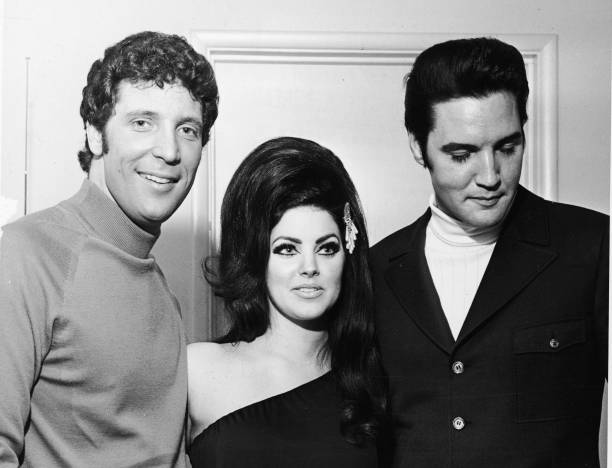 Introduction and Short Summary of the Song
Introduction and Short Summary of the Song
Recorded in January 1969 at American Sound Studio in Memphis, “Long Black Limousine” is one of Elvis Presley’s most haunting and powerful story-songs. Originally written by Vern Stovall and Bobby George in the late 1950s, it had already been recorded by several country artists before Presley gave it his definitive interpretation. The song tells the tragic tale of a young woman who leaves her humble home in search of fame and fortune, only to return in death, carried in the back of a long black limousine. Presley’s version, featured on From Elvis in Memphis, is a dark, dramatic ballad that blends country storytelling with the emotional depth of gospel and soul.
Origins of the Song
“Long Black Limousine” was first recorded in 1961 by country singer Wynn Stewart, though it failed to chart. Over the years, the song attracted attention from artists such as Glen Campbell, Merle Haggard, and Jody Miller, all of whom appreciated its narrative power. The song’s themes of ambition, tragedy, and mortality fit neatly within the country tradition of cautionary tales.
---> Scroll down for the VIDEO
When Presley returned to Memphis in 1969 to record with Chips Moman at American Sound Studio, he was looking for material that connected with his roots while also appealing to contemporary audiences. “Long Black Limousine” was chosen because of its powerful narrative and its potential for a dramatic vocal performance. It was recorded on January 13, 1969, during the same sessions that produced “In the Ghetto” and “Suspicious Minds.”
Why Elvis Released “Long Black Limousine”
By 1969, Presley was eager to reestablish himself as a serious recording artist after years of being tied to Hollywood soundtracks. The American Sound Studio sessions gave him the opportunity to work with strong material that resonated with authenticity.
---> Scroll down for the VIDEO
“Long Black Limousine” was not released as a single, but its inclusion on From Elvis in Memphis was deliberate. The album was designed to showcase Presley’s versatility and his connection to country, gospel, R&B, and pop traditions. The song’s tragic story and emotional intensity made it one of the album’s standout tracks, even if it wasn’t aimed at the charts.
The Message Conveyed in the Song
The song’s lyrics tell the story of a woman who leaves her small-town life behind, dreaming of fame and success in the city. Instead of returning home triumphant, she comes back in death, her body transported in a luxurious limousine:
“Everybody’s goin’ home but what’s left of me and you,
The long black limousine.”
The “long black limousine” becomes a symbol of irony and tragedy—a vehicle associated with wealth and success, but here used to carry a corpse. The message is a cautionary one, about the cost of ambition, the fragility of dreams, and the inevitability of fate.
Presley’s delivery intensifies the moral weight of the story. His voice is filled with sorrow and gravity, underscoring the pain of watching someone’s dreams end in tragedy.
The Recording and Musical Characteristics
“Long Black Limousine” is a masterpiece of arrangement and performance, blending elements of country storytelling with gospel intensity and soulful instrumentation.
-
Vocals: Presley’s performance is dramatic and heartfelt, moving between restrained verses and impassioned choruses. His phrasing conveys both sorrow and moral authority.
-
Instrumentation: The Memphis Boys provide a soulful backdrop, with piano, bass, guitar, and drums forming the foundation. Strings and horns were overdubbed, adding cinematic weight.
-
Backing vocals: Gospel-style harmonies from The Sweet Inspirations enhance the emotional resonance, giving the track a spiritual dimension.
-
Mood: Dark, solemn, and tragic, the song feels like both a country ballad and a gospel requiem.
The contrast between the upbeat, almost celebratory rhythm of the instrumentation and the tragic lyrics creates a sense of bitter irony that heightens the song’s impact.
Cultural and Commercial Impact
While “Long Black Limousine” was never released as a single, it quickly earned recognition as one of the standout tracks on From Elvis in Memphis, which itself became one of Presley’s most critically acclaimed albums. The song’s dramatic storytelling and Presley’s emotional depth impressed critics who had long dismissed his soundtrack work as shallow and formulaic.
Culturally, the song aligned Presley with the traditions of country storytelling, while the soulful Memphis arrangement connected him to the contemporary sounds of rhythm and blues. This blend of influences underscored Presley’s identity as an artist who could transcend genre boundaries.
Over time, the song has been hailed by fans and scholars as one of Presley’s finest narrative performances, even though it was never a hit.
Legacy of “Long Black Limousine”
Today, “Long Black Limousine” is regarded as one of Elvis Presley’s great hidden gems. It showcases his ability to bring emotional weight and authenticity to a song rooted in tragedy. For many fans, it represents the artistic rebirth he experienced during the Memphis sessions, proving that he was still capable of creating music of profound depth and relevance.
The song also stands as a testament to Presley’s versatility. He could take a country ballad, infuse it with gospel passion and soul, and transform it into something far more expansive. His rendition is often considered definitive, eclipsing earlier versions by other artists.
More broadly, “Long Black Limousine” highlights Presley’s gift as a storyteller. Beyond his charisma and vocal power, he had the rare ability to inhabit a song’s narrative fully, making the listener feel the weight of the story.
More than fifty years after its recording, the song remains a chilling, powerful piece of Presley’s catalog. It is a reminder of his artistry at its most serious and profound—a haunting ballad about ambition, loss, and the finality of death, delivered by a voice that could carry both heartbreak and grandeur.